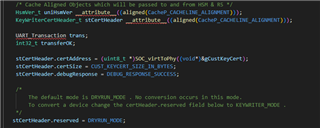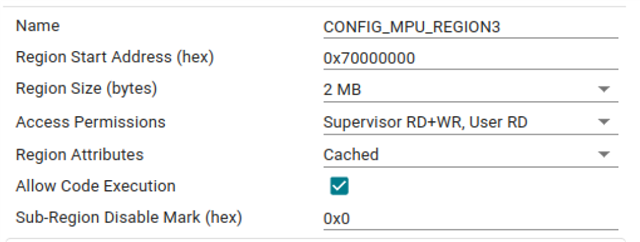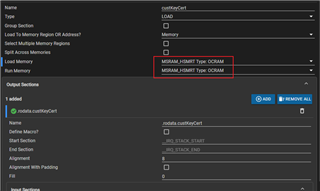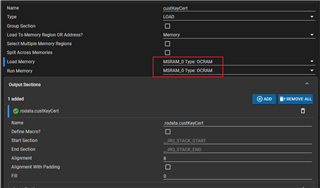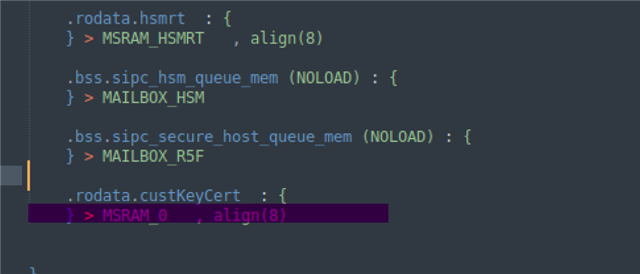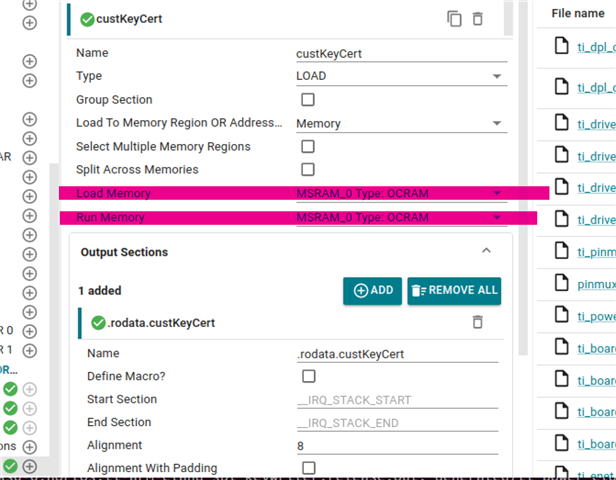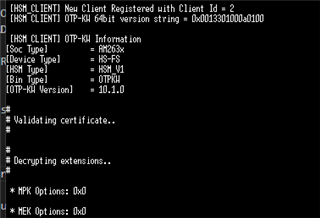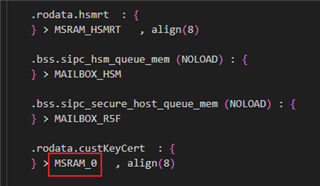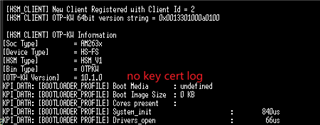Tool/software:
Hi team,
For some reason, I need to integrate keywriter function to my project. After intergration, it didn't work as expected. Below is the result comparision between sbl_keywriter demo project and my sbl project.
sbl_keywriter demo project log:(as in trial run mode,result is as expected)
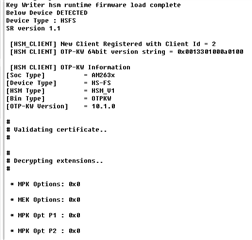

my sbl project log:(in trial run mode,expected same log with sbl_keywriter demo project, while the result is not)
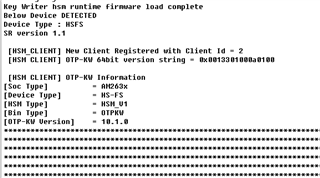

As shown above,in my sbl project, the hsmRtFw is loaded the same with sbl_keywriter demo project, and I initialized the device the same as sbl_keywriter demo project did. It seems that in my sbl project, after HsmClient_keyWriter() interface passed certificate to hsmRtFw, hsmRtFw didn't work as expected. There is no Validating certificate log and the reseult in variable certHeader.debugResponse is not right.
1: Did I miss any dependency for hsmRtFw or Any restriction known for integrate keywriter function to personal project?
2: And is it possible to integrate keywriter function to application project?
3: Is there any restriction for key certificate, as I want to pass the key certificate from pc to the board through UART or other interface?
Best regards,
Tristan



